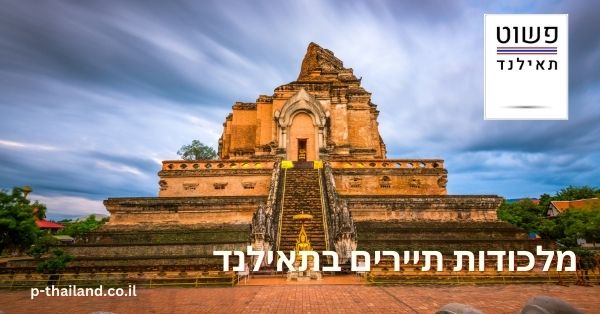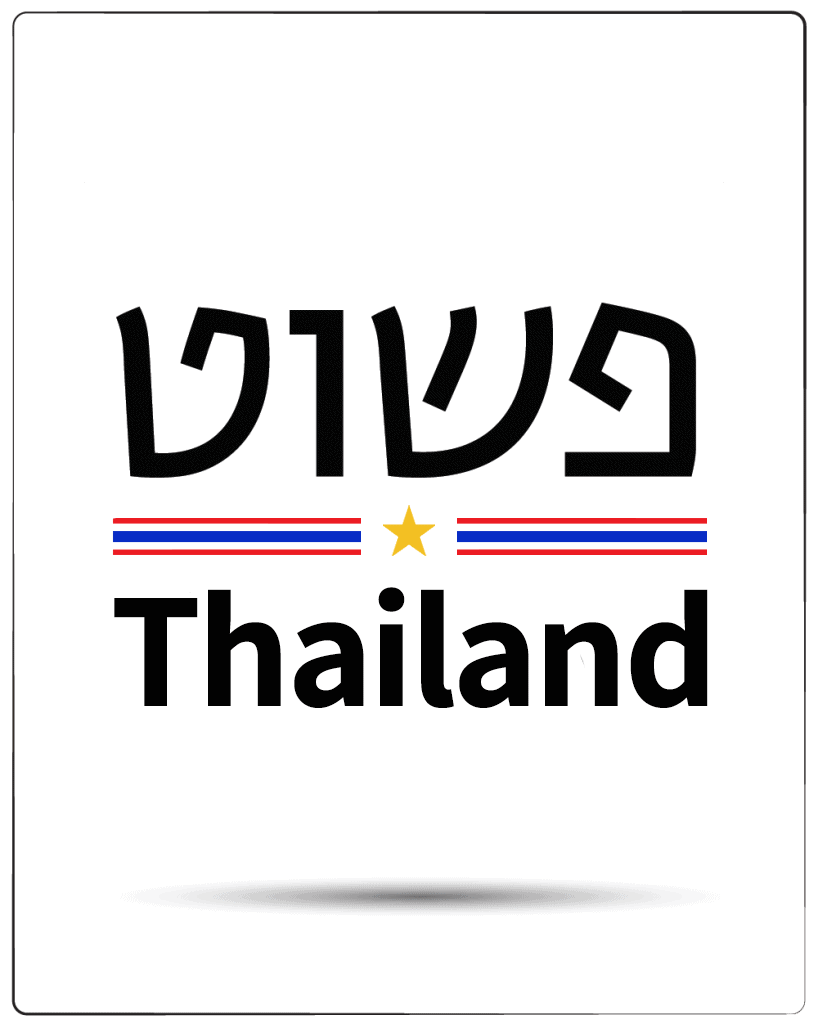Thailand, a country known for its vibrant culture, The delicious cuisine and its amazing views, attracts millions of tourists every year. However, like many other popular tourist destinations, it also contains a less pleasant aspect: tourist traps. Although it is a safe country and there is no fear of walking around it, either alone or in pairs, there are always people who will only see you as a wallet and use scams and exploitative practices, which may leave a bitter taste for the entire trip. To enjoy the wonders of Thailand while avoiding these pitfalls, you should know them and know how to avoid them.
Why are there tourist traps in Thailand?
As everywhere, there are those who look at tourists as walking wallets, and not as human beings. At the root of Thailand's tourist traps lies a combination of economic necessity and opportunity. A significant part of Thailand's economy is based on tourism, and for many locals struggling with economic difficulties, tourists are a lucrative source of income. Tourist traps are, unfortunately, an attempt to maximize this profit, designed to extract as much money as possible from unsuspecting visitors under the guise of tourism dependency.
Although some of the tourist traps do touch tourist sites or attractions, there is still a difference between tourist attractions Real that offer value, showcasing the country's rich history, culture and natural beauty., and tourist traps, that provide little value, often at inflated prices. Recognizing the difference between the two is the first step to a fun and enriching trip.

Tourist traps are common in Thailand
Transportation: taxis, tuk-tuks, minivans and buses
Getting around and transportation is a common way to trick tourists. Whether it is taxis, tuk-tuks, minivans or buses - some drivers may charge too much money and deviate from the agreed prices or the law. Taxis throughout the country are required to operate a meter on every trip, and if a certain driver refuses, simply move to the next taxi. You can agree with the driver on a "fix" price in advance, but you must make sure that the price is for the entire trip and not for one person. Also, you should be aware of the average prices for the various means of transportation before the trip. Prefer to use public transportation or authorized taxi services, and it is better to pay in small and accurate money as much as possible for fear of receiving an excess of fake money.
The Jet Ski (and Motorcycle) Trap
Thailand's breathtaking beaches are a must-see, but beware of the notorious biker traps. The lessors may accuse you of damaging the jet ski after you have finished using it, and demand exorbitant repair fees. All of this is also true for renting regular motorcycles (road), when a scratch or knock is suddenly discovered during the return, and you will be asked to pay a large amount in return. There are cases where while you are talking to the landlord, another person in a "police" shirt appears to put more pressure on you to pay. Of course he is not a policeman.
To avoid this, document the condition of the motorcycle well and from all directions before renting it with photos and/or videos, and in any case try to read as many reviews and recommendations as possible about the place you are renting from.
Overpriced souvenirs
Various souvenirs are a wonderful way to remember your trip even after you return, but quite a few shops may sell goods at an exaggerated and unreasonable price to tourists, and some of them get the cooperation of drivers who will stop "just for a moment" near such a shop when you are traveling with them. Many times they will also tell you that this is the "last day of the discount" to entice you to purchase something (usually jewelry) at a high price. In order not to fall into these traps, first of all search in advance and compare prices between stores. Don't be afraid to negotiate, and haggle as haggling is accepted in Thailand and the sellers even expect it. It is important to be polite and behave with respect, even if assertively. Also, do not agree to any deviation from the road when you travel by taxi or tuk-tuk, and it is also important to know that "discount week" or "tourism week" or any other name they choose to try to sell you - simply does not exist.
The place is closed
If you stopped a taxi / tuk-tuk and asked to go to a certain place and the driver informs you that unfortunately the place is closed - don't be tempted to believe so quickly. Sometimes he will try to say that today is a holy day or a holiday and then he will offer you an alternative, which is actually another place where he will receive a commission for the fact that he brought you to him. This is a particularly common scam especially in Bangkok, and many times tourists are put under such heavy pressure to buy that they simply have no choice.
The best way to avoid this is to plan the trip in advance, and check the opening hours of the places you want to go. Most of the tourist sites in Thailand are open every day of the week until 22:00, so unless there is really a holiday or holy day, there is no reason for them to be closed. Of course, the dates of these days can and should be found out in advance. Even in the places themselves sometimes people stand in front of the entrance to inform you that the place is "closed". Don't give up and go to the entrance to check.
Pickpocketing and impersonating police officers
Pick-pocketing is a well-known phenomenon in many countries of the world, especially in large and touristic cities. We probably don't need to introduce it, but we will emphasize the known things: don't walk around with large sums of money, don't put wallets and mobile phones in visible places, leave important documents in the hotel safe and invest in theft-proof bags.
On the streets of Thailand you may encounter people who will identify themselves as police officers and ask to see some form of ID or visa. When you present it to them, you will find that it has a "mistake" or a "defect" and all you need to do is pay them a small amount of money as a fine to continue on your way. Well, it's a trap. No one will charge you a fine on the street for a defect or defect in your visa or passport.
If you encounter such a situation, ask the "policeman" to present a certificate (a completely legitimate demand), ask exactly what the problem is with the document you presented, and if he still insists, look for a nearby policeman or the tourist police. They are usually in high presence on the main streets, and can be identified by their brown uniforms. In general, it is not recommended to walk around with documents such as a visa or passport, but leave them in the safe at the hotel and take a photocopy or a photo on your mobile device with you.
Beware, impersonating monks
The beautiful temples of Thailand are a major attraction for tourists. However, in some areas crooks may pose as monks or temple staff and demand donations or sell religious items at high prices. Real monks in Thailand never ask for donations. To donate to the temple or any other site there is an official donation box (found in almost every temple) and this is the only way you can do it if you want.
Additional emphases
- Do not rent a motorcycle or jet ski if you do not have a proper license. There will be places that will agree to this, but in the event of an accident or the need to activate insurance, it will of course not be valid and you will have to bear the costs in full.
- In general, rent a car (any car) only if you have a valid international license. There is no problem to issue such a license in a quick and simple procedure before the trip.
- Pay attention immediately to the excess you receive, count it on the spot before you leave and check the bills and coins. There are fakes that are hard to spot, but in many cases peddlers simply try to give you a different currency, assuming that you won't notice it because you don't know the local money.
- And do yourself a favor - avoid strip clubs, gambling or prostitution. These are places where they will surely work for you, and even if they don't - this is something we encourage.
How can the authorities help in case of fraud?
The Thai authorities are aware of the fact that there are many tourist traps in the country, and the tourist police operate a 24/7 hotline for foreigners in distress. If you feel that you have been bitten and you need help, call the number 1155 for assistance from the tourism police.
Other important numbers you should know:
Tourist Assistance Center: 1672
Police: 191
Ambulance: 1554
Firefighting: 199

